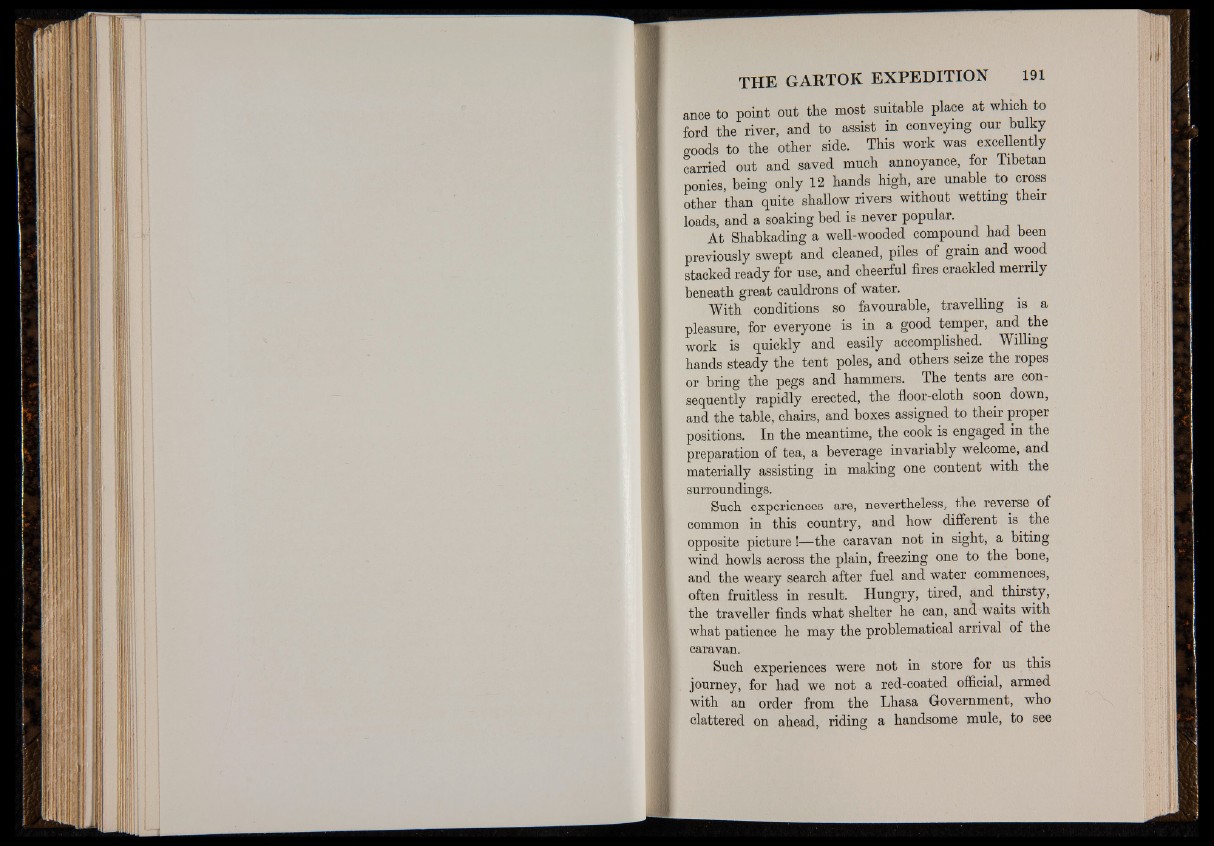
ance to point out the most suitable place at which to
ford the river, and to assist M conveying our bulky
goods to the other side. This work was excellently
carried out and saved much annoyance, for Tibetan
ponies, being only 12 hands high, are unable to cross
other than quite shallow rivers without wetting their
loads, and a soaking bed is never popular.
At Shabkading a well-wooded compound had been
previously swept and cleaned, piles of grain and wood
stacked ready for use, and cheerful fires crackled merrily
beneath great cauldrons of water.
With conditions so favourable, travelling is a
pleasure, for everyone is in a good temper, and the
work is quickly and easily accomplished. Willing
hands steady the tent poles, and others seize the ropes
or bring the pegs and hammers. The tents are consequently
rapidly erected, the floor-cloth soon down,
and the table, chairs, and boxes assigned to their proper
positions. In the meantime, the cook is engaged in the
preparation of tea, a beverage invariably welcome, and
materially assisting in making one content with the
surroundings.
Such experiences are, nevertheless, the reverse of
common in this country, and how different is the
opposite picture!—the caravan not in sight, a biting
wind howls across the plain, freezing one to the bone,
and the weary search after fuel and water commences,
often fruitless in result. Hungry, tired, and thirsty,
the traveller finds what shelter he can, and waits with
what patience he may the problematical arrival of the
caravan.
Such experiences were not in store for us this
journey, for had we not a red-coated official, armed
with an order from the Lhasa Government, who
clattered on ahead, riding a handsome mule, to see